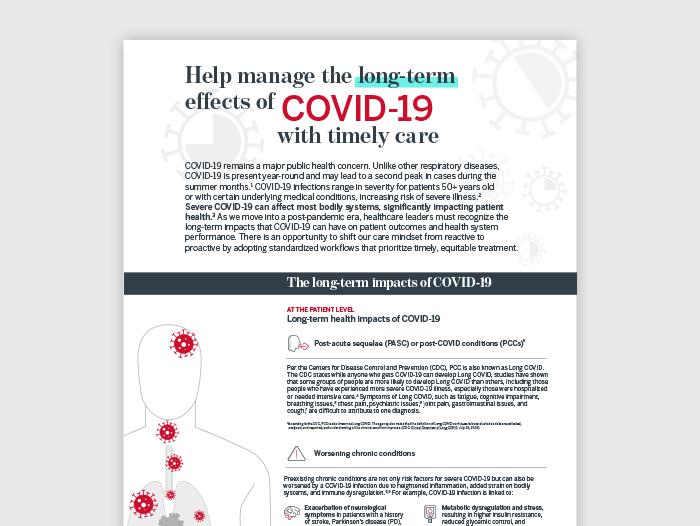Auto logout in seconds.
Continue LogoutAccording to CDC data, COVID-19 cases are rising across several areas of the United States, with infections growing or likely growing in more than 30 states. Meanwhile, delays in approving updated COVID-19 vaccines and changing vaccine recommendations have led health experts to grow concerned about vaccine access during the upcoming respiratory virus season.
COVID-19 cases are rising in certain parts of the US
According to Marlene Wolfe, principal investigator and co-program director of WastewaterSCAN, COVID-19 levels in wastewater started increasing in late June and are now considered to be high in the West, South, and Midwest. COVID-19 wastewater levels are also getting higher in the Northeast.
Currently, CDC analyses suggest that COVID-19 infections are growing or likely growing in 34 U.S. states. For the week ending August 9, the nationwide COVID-19 test positivity rate was 8.9%, a slight increase from 7.5% during the two weeks prior. The states with the highest COVID-19 test positivity rates were Arizona, California, Hawaii, and Nevada at 12.5%.
Currently, the predominant COVID-19 variant in the United States is XFG or "stratus," making up two-thirds of COVID-19 variants detected in wastewater. XFG is an offshoot of the JN.1 variant, which was dominant during the winter of 2023-2024.
Although the latest COVID-19 variants may be better at evading immunity, health experts say that they do not appear to cause more severe symptoms or have significant differences compared to older variants.
What will happen with COVID-19 vaccines in the fall?
In May, FDA's Vaccines and Related Biological Products Advisory Committee recommended that COVID-19 vaccine manufacturers update their shots to target JN.1 variant, which was closer to the strains on the rise at the time. Typically, FDA approves updated COVID-19 vaccines by late August or early September to allow pharmacies and doctors' offices to place orders, but that has not yet happened this year.
CDC's Advisory Committee on Immunization Practices (ACIP) has also not made any COVID-19 vaccine recommendations and may not convene a special meeting to discuss the vaccines until mid-September at the earliest. Notably, HHS Secretary Robert F. Kennedy Jr. fired all 17 members of ACIP in June and appointed his own members soon after. Of the seven current ACIP members, four have spoken out publicly against the widespread use of COVID-19 vaccines.
Access to COVID-19 vaccines in the fall will also likely be limited to certain groups — a sharp contrast to their previous broad availability for both children and healthy adults.
In May, FDA announced that it would limit future access to COVID-19 vaccines to people ages 65 and older and those who are at high risk of complications related to the disease. Around the same time, Kennedy announced that CDC would no longer recommend routine COVID-19 vaccines for healthy children and pregnant people.
Several healthcare organizations, including the American College of Obstetricians and Gynecologists and the American Academy of Pediatrics (AAP), have spoken out against these changes in vaccine recommendations.
related resources
On Tuesday, AAP issued its own COVID-19 vaccine recommendations as part of broader guidance for the upcoming respiratory virus season. Currently, AAP recommends all children ages six months to 23 months receive a COVID-19 vaccine to help protect them against severe illness, since children in this age group are at a higher risk of hospitalization. Healthy children ages two to 18 can also receive a COVID-19 vaccine if their parents want them to have the protection, AAP said.
James Campbell, vice chair of AAP's infectious disease committee, said that while the differing guidance "is going to be somewhat confusing … our opinion is we need to make the right choices for children to protect them."
In response to AAP's recommendations, HHS spokesperson Andrew Nixon accused the organization of "undermining national immunization policymaking with baseless political attacks."
Kennedy also spoke out against AAP on X, calling the organization "corporate-friendly" and saying that it should disclose its "corporate entanglements" and conflicts of interest "so that Americans may ask whether the AAP's recommendations reflect public health interest, or are, perhaps, just a pay-to-play scheme to promote commercial ambitions of AAP's Big Pharma benefactors."
AAP president Susan Kressly said the organization welcomes an opportunity to discuss the COVID-19 vaccine recommendations with Kennedy.
"This attack on the integrity of pediatricians is unfortunate, but it does not change the facts,” Kressly said. "We are transparent about our funders, follow rigorous conflict-of-interest disclosures and maintain safeguards to ensure the integrity and independence of our guidance."
(CDC COVID Data Tracker, accessed 8/20; CDC Current Epidemic Trends, accessed 8/20; Scribner, Axios, 8/8; Haggerty, Los Angeles Times, 8/16; Malhi, Washington Post, 8/16; Sun, Washington Post, 8/19; Associated Press/MedPage Today, 8/19; Weixel, The Hill, 8/19)
Don't miss out on the latest Advisory Board insights
Create your free account to access 1 resource, including the latest research and webinars.
Want access without creating an account?
You have 1 free members-only resource remaining this month.
1 free members-only resources remaining
1 free members-only resources remaining
You've reached your limit of free insights
Become a member to access all of Advisory Board's resources, events, and experts
Never miss out on the latest innovative health care content tailored to you.
Benefits include:
You've reached your limit of free insights
Become a member to access all of Advisory Board's resources, events, and experts
Never miss out on the latest innovative health care content tailored to you.
Benefits include:
This content is available through your Curated Research partnership with Advisory Board. Click on ‘view this resource’ to read the full piece
Email ask@advisory.com to learn more
Click on ‘Become a Member’ to learn about the benefits of a Full-Access partnership with Advisory Board
Never miss out on the latest innovative health care content tailored to you.
Benefits Include:
This is for members only. Learn more.
Click on ‘Become a Member’ to learn about the benefits of a Full-Access partnership with Advisory Board
Never miss out on the latest innovative health care content tailored to you.


